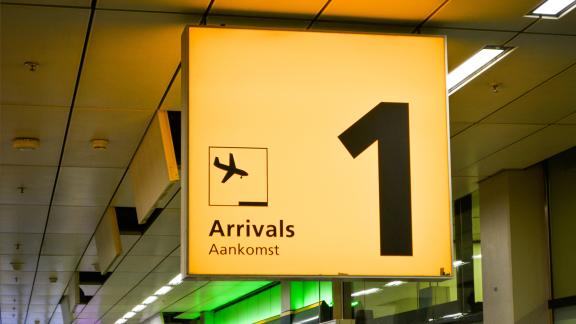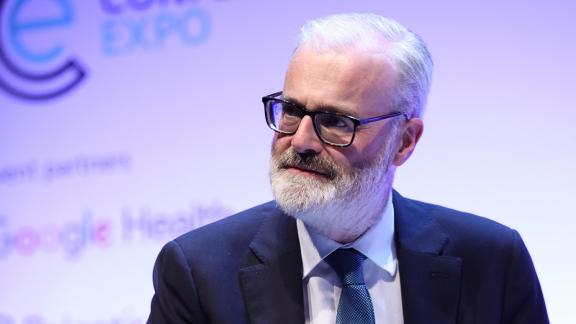The impact of changes in the immigration white paper for the NHS

Yesterday (12 May 2025) the government published its highly anticipated immigration white paper that outlined changes to the UK immigration system to prioritise 'control, contribution, and community cohesion'.
Changes will impact the whole immigration system including illegal and legal migration routes of work, study, and family. There is currently no set timetable of when these changes will be implemented.
Take a look at the .GOV website to view the white paper.
What the main changes mean for employers (more detailed information is supplied below):
- Band 3 and band 4 roles, such as health care support workers, will not meet the new proposed higher skills threshold of RQF 6 (degree level) and above. This means band 3 and 4 roles will be out of scope of the immigration system, unless roles are added to the Temporary Shortage List, which is unlikely.
- Registered Professional (band 5) roles will typically meet the higher salary threshold of RQF 6 (degree level). While these roles are likely to meet the requirements in terms of skill level (if they require a degree), we are awaiting the announcement of the new salary thresholds and if the 25/26 pay award uplift will meet these requirements.
- Once the skills threshold is raised, existing Skilled Worker visa holders will continue to be able to renew their visa, change employment and take supplementary employment, in currently eligible occupations below RQF 6; however, applicants from overseas, or those applying to switch from other routes, will have to follow the new rules.
- Skilled workers and those applying for settlement will now need to meet English language level B2 (independent user) of the Common European Framework of Reference of Languages (CEFR).
- Adult dependants will also be impacted by the changes to English language requirements with a new requirement of level A1 (basic user) and the dependants will need to increase their skills over time when they apply for extensions (level A2) and settlement (level B2). This may impact on retaining internationally educated employees going forward, if their dependants are unable to reside in the UK.
- Graduate Visa rules will be tightened, reducing the unrestricted period from 24 months to 18 months. Those who wish to stay after the 18-month period must be employed in graduate level roles (typically band 5 and above).
- There will be an increased financial cost to employers with the Immigration Skills Charge increasing by 32 per cent (approximately £1,320 per year).
- Employers will need to sponsor international workers for longer for them to apply for settlement (from five to ten years).
What the changes mean for social care employers:
- Employers will no longer be able to source care workers from overseas due to the proposed increase in skill level and concerns over abuse and exploitation of individual workers.
- For care workers already in the country with working rights, there will be a three-year transition period to extend or switch in-country, but this will be kept under review.
- Those employing social care roles will need to continue to work with regional partnerships and attempt to recruit from a pool of displaced workers. This may be reviewed at the end of the transition period.
These changes will be implemented over 2025, 2026 and the remainder of this parliamentary term depending on parliamentary time. Until the changes are implemented, the current immigration rules still apply and should be followed.
Danny Mortimer, co-chair of the Cavendish Coalition and chief executive of NHS Employers, responded to the white paper.
Further details of the changes that will impact the NHS include:
- Increasing the skills level from RQF 3 (A-level) to RQF 6 (degree level) with salary thresholds increasing to match.
- The Immigration Salary List will be abolished and replaced by a Temporary Shortage List for select roles between RQF 3-5, along with workforce strategies to increase training and participation rates in the UK. Those roles on the Temporary Salary List will also have restrictions on dependants.
- Linking access to visas to skills and training by prioritising domestic training plans and industry workforce strategies.
- Immigration Skills Charge (ISC) increasing by 32 per cent in line with inflation (rising from £1,000 per year for medium or large sponsors to approximately £1,320 per year).
- Increasing English language level requirements for visa holders and dependants. For example, skilled workers and those applying for settlement will now need a level B2 (independent user) of the Common European Framework of Reference of Languages (CEFR), and those on a dependant route that previously did not have any English language requirement will need to meet level A1 (Basic User) and increase in skills throughout extensions (level A2) and settlement (level B2).
- New earned settlement and citizenship rules will mean the length of time before those under the points-based system can apply for settlement will increase from five to ten years, unless they can demonstrate a "real and lasting contribution to society" allowing those with greater contribution to become a citizen sooner.
- Changes to refugee employment, allowing a limited pool of United Nations High Commissioner for Refugees (UNHCR) refugees to access the Skilled Worker route if they have the skills to do so.
- Changes to the Graduate Visa route that will shorten the length of their visa from 24 month (36 months if they have a PhD) to 18 months. While they will still have the unrestricted right to work during this time (they do not have to meet a skill or salary threshold), this means that those who wish to stay after this period will need find work at a graduate level role (RQF 6 and above) sooner than under the current rules.
Changes that will impact social care:
- The social care visa route will be closed to overseas recruitment and the domestic pipeline will be developed through Fair Pay Agreements.
- There will be a three-year transition period for those already in the country with working rights to extend or switch in-country for those already with working rights, but this will be kept under review.
Other changes include:
- Reforms to deportation and removal rules to make it easier to remove foreign criminals committing crimes in the UK.
- Establishment of a Labour Market Evidence Group (LMEG) made up of the Industrial Strategy Council, Department of Work and Pensions, skills bodies and the Migration Advisory Committee (MAC) to identify overreliance on overseas recruitment and reverse underinvestment in domestic skills.
- Changes to the Global Talent and High Potential Individual routes.
- Streamlining Skilled Worker Visa applications and processes through technological advancements in eVisas and eGates.
- Strengthening the requirements for sponsors of skilled students.
The white paper also outlines other reforms including fair controls on illegal migration and new family reforms, putting more responsibility and accountability on effective and responsible sponsors making it easier for workers to move between licensed sponsors for the duration of their visa, and fostering integration and cohesion into UK society.
We will keep employers informed of these changes as they progress. If you have any questions, please contact internationalrecruitment@nhsconfed.org.


